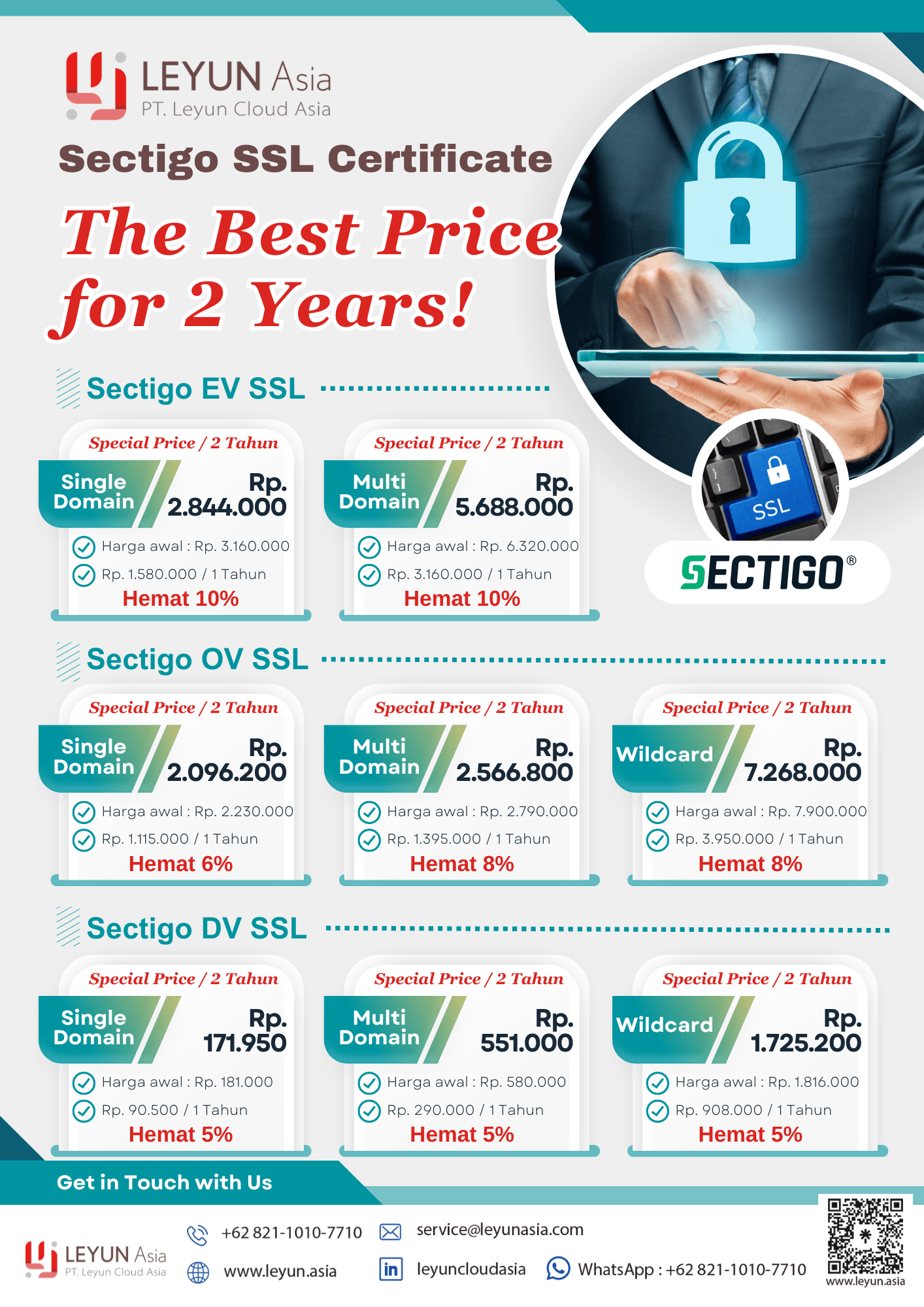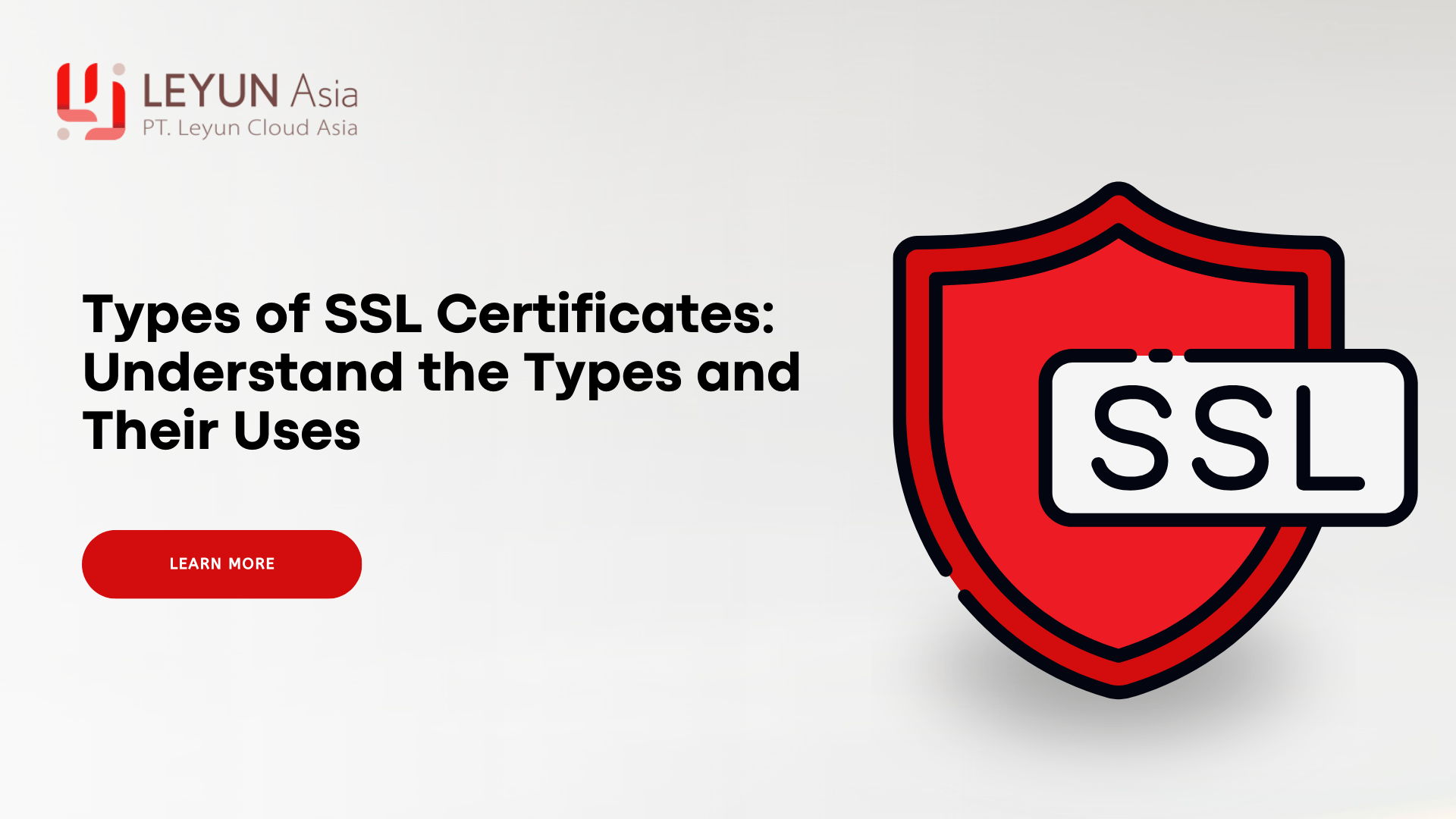In today’s digital era, data security is one of the top priorities for website owners. This is where SSL (Secure Socket Layer) plays an important role. SSL protocol ensures that the data transmitted between the server and the client remains secure and protected from unauthorized parties. Let’s explore the different SSL certificates you can choose to protect your website.
Are you confused about which SSL certificate to choose for your website? Don’t worry! Before deciding, it’s important to understand the various types of SSL available. Each type has its characteristics and functions, and knowing them will help you choose the one that best suits your website’s needs.
What is SSL?
SSL, or Secure Socket Layer, is at the heart of online security, keeping your information safe while surfing the internet. Imagine you are transacting on an online store and suddenly feel anxious about who might be peeking into your personal information.
This is where SSL plays an important role. By encrypting the data sent between the server and the client, SSL creates a secure tunnel that protects sensitive information, such as passwords and credit card details, from unauthorized hands. The padlock icon in the address bar indicates that your connection is secure, giving you peace of mind and protecting your privacy. SSL is not just a protocol but a pillar of trust in the cyber world that helps keep your data secure and private.
Difference Between SSL and TLS
When looking for an SSL certificate provider, there are many factors to consider. One of them is the right type of SSL to install. With so many options available, you want to ensure you don’t make the wrong choice.
Here is the difference between SSL (Secure Socket Layer) and TLS (Transport Layer Security)—both are protocols used to secure internet communications. Although they are often used interchangeably, there are some key differences between the two:
– Development: SSL is an older protocol developed by Netscape in the 1990s. TLS is the successor to SSL, first released in 1999 as TLS 1.0. This protocol was designed to fix some weaknesses found in SSL.
– Security: TLS offers a higher security level than SSL. With the advancement of technology and attack methods, TLS has undergone several updates to enhance data protection, whereas SSL is considered insecure and discontinued.
– Versions: SSL has several versions (SSL 1.0, 2.0, and 3.0), but only the last version was widely recognized and used. On the other hand, TLS also has several versions (TLS 1.0, 1.1, 1.2, and 1.3), with TLS 1.2 and 1.3 being the most commonly used today.
Types of SSL Certificates and Their Functions
One of the most important things to consider when exploring the online world is data security. SSL certificates play a role here, helping to protect sensitive information and build user trust. However, with the various types of SSL certificates available, you may wonder which is most suitable for your site. Let’s explore some types of SSL certificates and their uses:
1. Domain Validation (DV) SSL
This certificate provides a basic layer of security by verifying domain ownership. The process is fast and simple, making it an ideal choice for personal websites or blogs that do not handle sensitive information.
2. Organization Validation (OV) SSL
For businesses looking to demonstrate credibility to customers, this certificate verifies domain ownership and the organization’s identity. This provides additional security for visitors interacting with your site.
3. Extended Validation (EV) SSL
EV SSL is the best choice if you manage an e-commerce site or a financial institution handling sensitive transactions. The verification process is rigorous and requires official documents, so when visitors see the green address bar, they know they are interacting with a trusted site.
4. Wildcard SSL
For those who have multiple subdomains, Wildcard SSL offers a practical solution. You can protect multiple subdomains of the same domain with a single certificate. It is highly efficient and cost-effective, especially for sites with many branches.
5. Multi-Domain SSL
This certificate allows you to secure multiple different domains with one certificate. It is ideal for companies with several websites, providing convenience in managing security.
By understanding these different types of SSL certificates, you can make an informed decision to protect your website and provide a secure experience for your visitors. Security not only protects data but also builds the trust that is crucial in the online world.
How to Choose the Right SSL?
Choosing the right SSL certificate for your website can be daunting, but there are steps you can take to make an informed decision. Here is a guide to help you choose the right SSL type:
1. Identify Your Needs
First, consider the type of website you have. Is it a personal blog, an e-commerce site, or a business portal? The type of content and transactions you handle will affect the choice of SSL certificate.
2. Determine the Level of Trust Needed
– If you only need basic protection for a personal website or blog, Domain Validation (DV) SSL might be sufficient.
– Organization Validation (OV) SSL could be a better choice for business websites that want to show visitors credibility.
– If you manage a site that handles sensitive information, such as financial transactions, consider Extended Validation (EV) SSL to provide maximum trust.
3. Consider the Number of Domains and Subdomains
If you have multiple subdomains or different domains, consider using Wildcard SSL or Multi-Domain SSL. This will save costs and make certificate management easier.
4. Evaluate SSL Certificate Providers
Choose a reputable SSL certificate provider. Make sure they offer adequate customer support and an easy installation process.
5. Check Prices and Renewals
Compare the prices of different SSL certificates and take note of renewal costs. Some providers may offer discounts for long-term purchases.
6. Ask About Warranties and Support
Some certificate providers offer financial guarantees in the event of a security breach. Make sure you choose a provider that provides responsive customer support if you need help.
With these steps, you can be more confident in choosing the right SSL certificate for your website. Security is an important investment; choosing the right certificate will help protect your data and increase visitor trust.
Special Promo From Sectigo SSL
Get the special promo this month, consult with our team immediately by filling out the form below:



